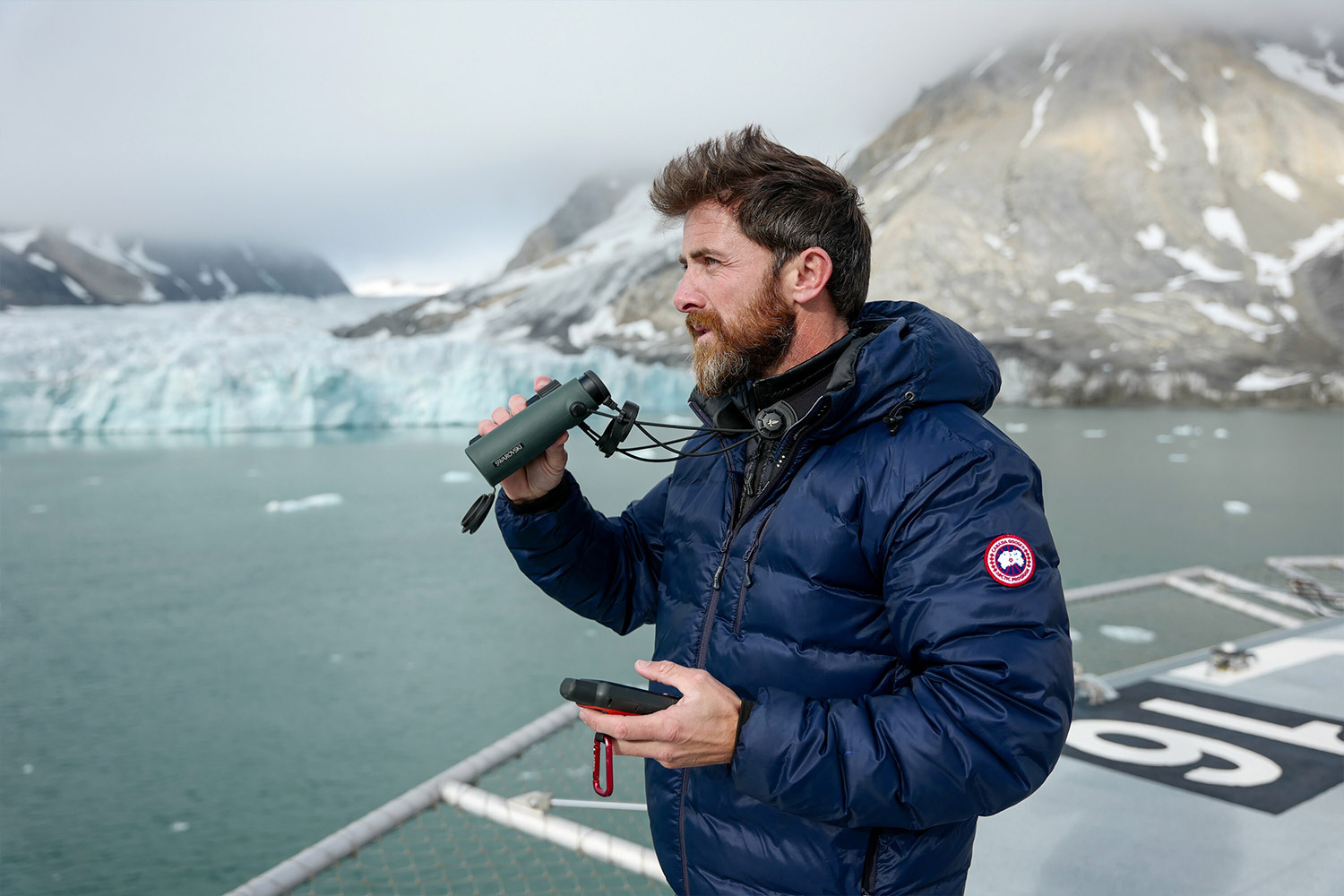As a former Royal Marines Commando sniper turned TV personality, Aldo Kane might just be Britain’s toughest bloke.
An expert in survival and navigating hostile environments — from jungle to desert, Arctic to mountains — he’s also led a number of death-defying expeditions as a private citizen, sometimes for TV, sometimes just for kicks.
Kane joined InsideHook over Zoom to talk about his new National Geographic show OceanXplorers, which premieres on August 18 and features James Cameron as executive producer and narrator, as well as the lessons he learned climbing with Alex Honnold and how to survive swimming with sharks.
InsideHook: What made you want to get involved with this new show?
Aldo Kane: Ocean exploration. I’m a former Royal Marines Commando. I spent 10 years as one of Britain’s sea soldiers, but I hadn’t been at sea for a while. Also, the opportunity to do something with the BBC and James Cameron’s team was great. Ultimately, it was underpinned by science. When I was younger, I would explore to say “I’ve done this thing.” Now I get fulfillment in being able to make things a little bit better, or to try to find out more about the environment, the climate, animals.
How would you define exploration?
Having done multiple world-first expeditions in hardcore environments — rowing across the Atlantic, climbing Everest, paddling rivers that people have never been down before — I actually have quite a conventional view on what exploration is.
Exploration is different to different people and I’ve been very lucky to do it at the high end. For someone who’s housebound, just getting out the front door can be an adventure. Adventure is pretty much what you make it. You can make your commute to work adventurous if you want.
You worked with Alex Honnold on another Nat Geo series. What were your impressions of him?
I learned a lot from Alex. He has a very different view of risk and hazard than mine. I always thought, if you’re climbing El Capitan with no ropes, isn’t that reckless? [But] when you speak to Alex, he is the polar opposite of reckless. It’s about control and planning and spending 10 years of your life to learn every single move to where he can talk you through the entire wall. I guess his point of view is that when you practice so much for something, then there really isn’t the risk — except of course for the objective risk of rain or rocks coming down.
Speaking of risk, you’re diving with hammerheads on the new show. How do you prepare for run-ins with large animals like that?
We’ve done a good job in the U.K. of eradicating all of our predators of years ago. But I have done a lot of work over the years where we’re in the water with sharks, or whales, or we’re tracking polar bears. I’ve been on expeditions where we’re sharing the same jungle track with wild tigers.
It’s about working with specialists who know these animals inside out. The more risks you understand, the more you can plan. If there’s any likelihood of something not going the way you planned, then you don’t do it. In all of these environments, the animals have much more to fear from us than we do from them.
Preparation aside, how do you mentally prepare for possible danger?
The Royal Marines are the cream of British elite fighting forces, and you learn a lot about how to handle oneself in tricky situations. When you’ve been to war, you have a very good understanding of what it’s like to be scared for your life, what it’s like to have almost no control. If you wanted to talk about real risk, ask yourself “When was the last time I went for a run?” or “When was the last time I was aware of my diet?” Ultimately, you’re probably going to die of a heart attack, or diabetes, not by being bitten by a shark or chased down by a bear.
What’s left on your bucket list?
I’d love to do a cold challenge. Myself and a couple of other guys are looking at doing an Arctic ultra [marathon] next year. I hold in high regard doing a hard physical thing every year. Something that’s uncomfortable, that’s painful, which then kind of makes everything else in life manageable. A lot of people talk about these things, but doing them is a different matter.
Whether you’re looking to get into shape, or just get out of a funk, The Charge has got you covered. Sign up for our new wellness newsletter today.
